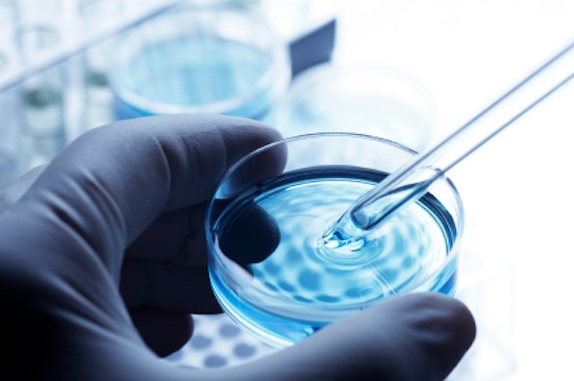
Professor Nigel Titchener-Hooker, winner of the Danckwerts Award, head of the UCL Department of Biochemical Engineering, and director of the EPSRC Centre for Innovative Manufacturing of Emerging Macromolecular Therapies, will be presenting the Danckwerts Award Lecture, November 17, 2014
Co-sponsored by AIChE, the European Federation of Chemical Engineering (EFCE), the Institute of Chemical Engineers (IChemE) and Elsevier’s Chemical Engineering Science, the Danckwerts Award Lecture is held at AIChE Meetings on alternating years. Professor Nigel Titchener-Hooker will be presenting the Danckwerts Award lecture at this year’s AIChE Annual Meeting.
The Danckwerts Lecture was established in 1985 to honor Prof. Peter V. Danckwerts as a leading scholar in the field of chemical engineering and for his contributions as an Executive Editor of Chemical Engineering Science, the second Shell Professor of Chemical Engineering at the University of Cambridge, and past president of the Institute of Chemical Engineering.
Dr. Titchener-Hooker’s lecture, entitled “Engineering Global Biological Solutions,” provides an overview of relevant industrial examples to demonstrate how our capacity to engineer global biological solutions continues to advance the translation of life science into commercial outcomes.
Professor Nigel Titchener-Hooker, CEEng, FREng, FIChemE heads the UCL Department of Biochemical Engineering and directs the EPSRC Centre for Innovative Manufacturing of Emerging Macromolecular Therapies. This involves collaboration with an international consortium of 30 companies and is valued at over £30M. As the first director of the Engineering Doctorate Centre for Bioprocess Leadership he managed a portfolio of over 60 doctorate programs with companies spanning the whole breadth of the biotech industry. His particular research interests are centered on the delivery of whole bioprocess solutions and in particular the interface between unit operations. He pioneered studies in the area of process-business decision making and as Director of the Innovative Manufacturing Research Centre (IMRC) in Bioprocessing was closely involved with the creation of ultra-scale-down tools for the evolution of process flow sheets for the efficient recovery and purification of high value protein therapeutics.
Dr. Titchener-Hooker has held consultancies with a broad range of international companies and serves on the editorial board of key journals. Elected a Fellow of the Royal Academy of Engineering in 2008 in recognition of his pioneering work on biopharmaceuticals manufacturing he is also a Fellow of the Institution of Chemical Engineers. He was the first non-USA Chair of the Board of the prestigious Recovery of Biological Products conference series. He was selected to the EPSRC Strategic Advisory Network reporting direct to Council. In 2013 he was awarded the Donald Medal by the Institution of Chemical Engineers in recognition of his contributions to the discipline and led the Department to win a Queens Anniversary Trust Award for its pioneering studies underpinning the bioprocessing industry in 2014.
Danckwerts Lecture
The Danckwerts Lecture was established in 1985 to honor Prof. Peter V. Danckwerts as a leading scholar in the field of chemical engineering and for his contributions as an Executive Editor of Chemical Engineering Science, the second Shell Professor of Chemical Engineering at the University of Cambridge, and past president of the Institute of Chemical Engineering. The Danckwerts Lecture is co-sponsored by Chemical Engineering Science, IChemE, AIChE, and EFCE, and is held in alternating years at the ECCE and AIChE meetings. Please visit www.elsevier.com/locate/ces for more information.
Engineering Global Biological Solutions
Professor Nigel Titchener-Hooker, Department of Biochemical Engineering, UCL
The past decades have seen biopharmaceuticals begin to dominate the drug development pathway and already we can see potent biologics bringing benefits to populations on a truly impressive scale. There remains much to do before we can claim however that the benefits of our burgeoning capabilities in the life sciences are fully translated into treatments, delivered globally. That challenge, of enabling the exquisite power of biologically-derived drugs and treatments to benefit world-wide populations, will require significant engineering innovation. This talk will look at some of these development and illustrate potential solutions driven by work from the Department of Biochemical Engineering at University College London (UCL); a pioneer in the field.
Challenges will be used to illustrate the nature of the advances made and of the path ahead. The first is the need to move rapidly from promising drug candidate to a robust and efficient process. Here UCL created the concept of ultra scale-down (USD) which can enable process insights to be gained with a few 10’s of mL of material.
Second is the need to make best decisions, be that at the level of technology choice or on a portfolio of drugs for development. So called Decisional Tools have been deployed to address such questions and to provide critical direction to research efforts as drugs move toward manufacture.
Finally we need, as engineers, to understand better the ways in which complete bioprocesses behave so that we can design and operate processes with confidence. A key example is the capacity to gain detailed insights into the processes of chromatographic performance loss. Here the ability to scrutinise at an individual bead level can create rich information for the biochemical engineer.
The talk will be supported with relevant industrial examples to demonstrate how our capacity to engineer global biological solutions continues to advance the translation of exciting life science into commercial outcomes.

